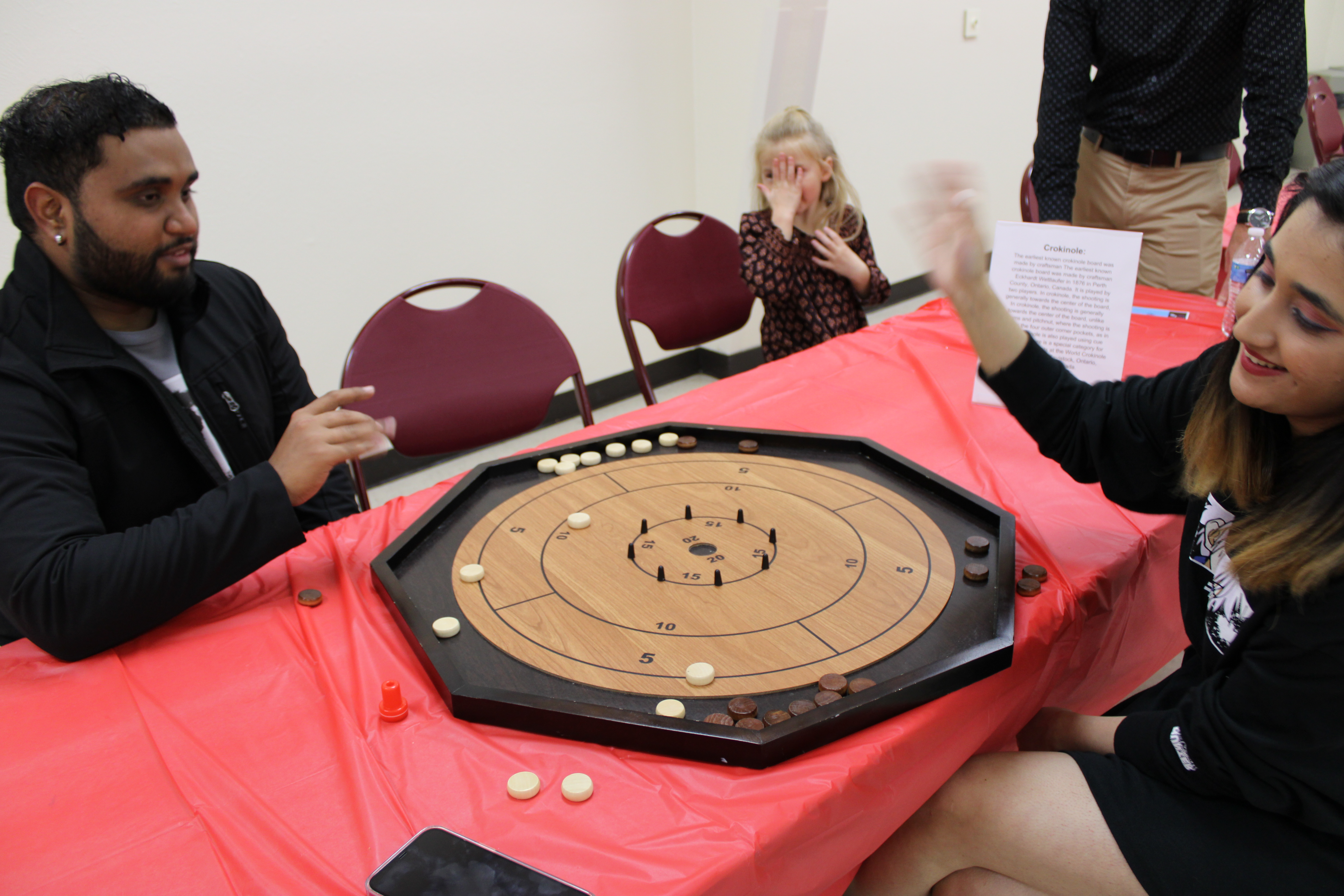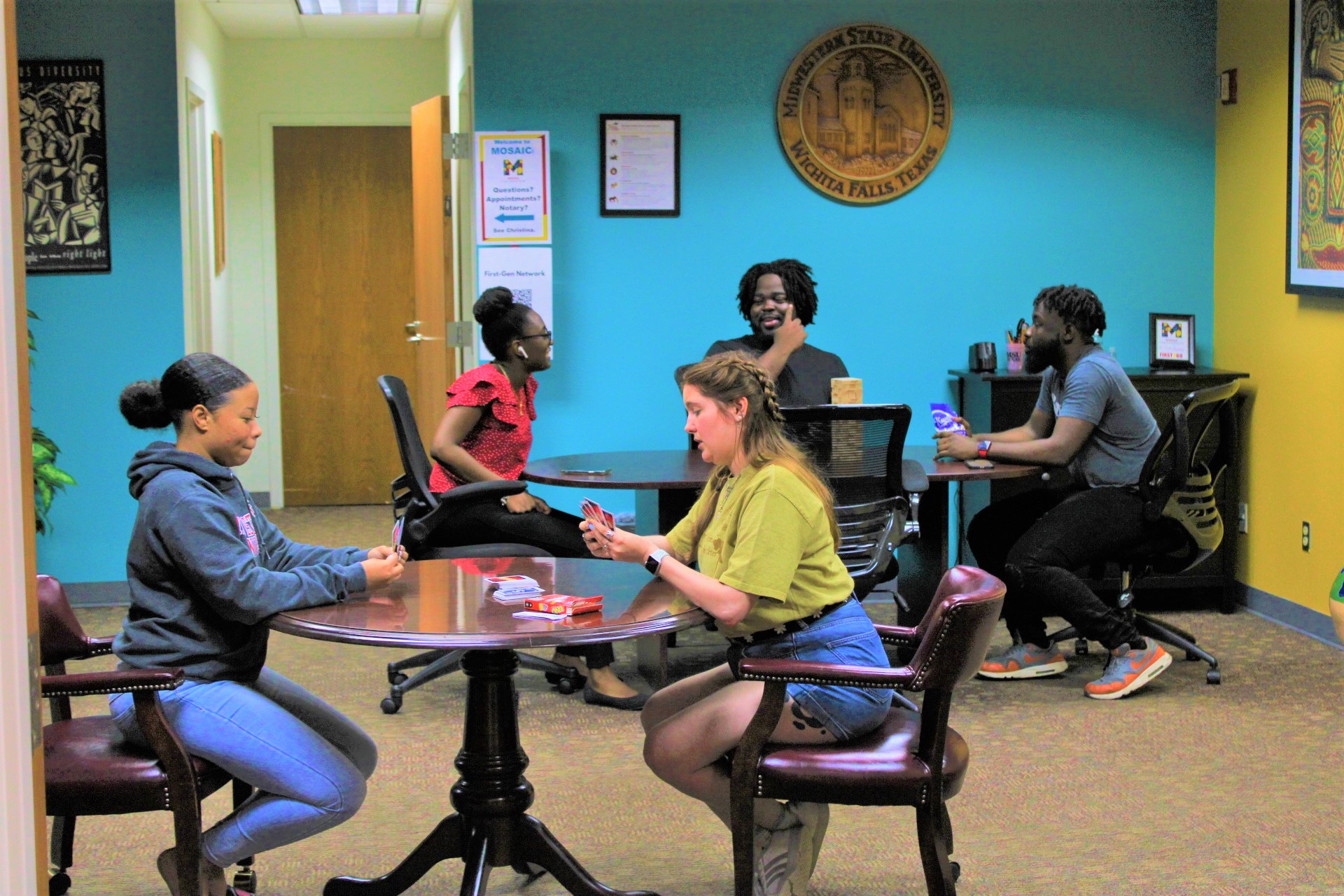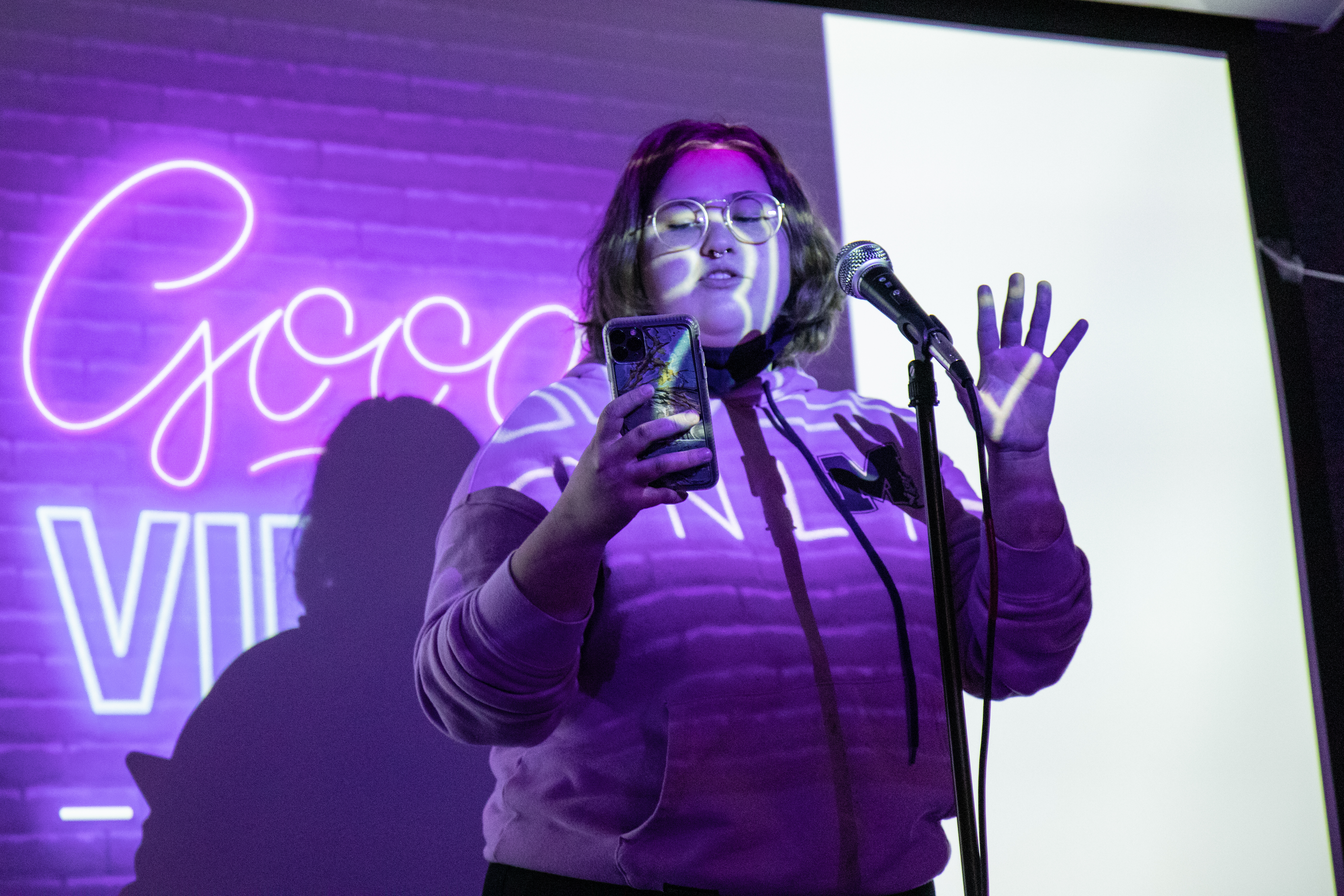- Purpose & Guiding Principles
- Meet the Team
- Land Acknowledgement
To cultivate a sense of belonging for all students at MSU Texas by facilitating student access to critical resources and opportunities, supporting student success and advocating for constant improvement in the way we meet students’ needs across our campus.

-
Sense of Belonging. To be seen and treated with respect and compassion. To know that my presence matters and is meaningful on this campus.
-
Community. To find groups/places on this campus in which I am safe, supported and empowered to contribute and to grow.
-
Engagement. Access and success in and out of the classroom.

|
Cammie Dean, M.Ed Assistant Vice-President for Student Affairs  |
Ruby Garrett, M.Ed Assistant Director of MOSAIC
|
Christina Fisher Administrative Assistant
|
|
Ryan Kelly
Coordinator of The Priddy Scholars ryan.kelly@msutexas.edu |
|
|
Short Version
Both the city and county surrounding the campus are named for the Wichita peoples, the more recent stewards of the lands and waters in this region. The Wichita were preceded by those they claim as ancestors – the Old Time People, and possibly the Apache. Along with the Comanche, Kickapoo and Kiowa peoples, the Wichita farmed, hunted and traded on both sides of the Red River
We recognize the land and its original stewards are a call to action. We cannot change the past, but today, we can make decisions and hold ourselves accountable for better serving our local indigenous communities and the Nations represented within.
We speak the names of these people's respectfully and in the present tense.
Apache, who refer to themselves as Indé [pronounced en-DAY] meaning 'person' or 'people'
Wichita, who call themselves Kirikir?i:s [pronounced kiddi-kid-ees], which may mean raccoon-eyes
Kiowa, or Ka'igwu [pronounced kahy-gwuh], the Principal People
Comanche, “Nʉmʉnʉʉ” (NUH-muh-nuh) meaning, “The People”.
Kickapoo, or Kiikaapoa, which means “Moving About”
In this moment, we honor their resilience, consider the implications of the past and commit to do better tomorrow.
Long Version
The land on which MSU Texas operates is occupied territory – the prehistoric home to indigenous peoples long before Europeans arrived in the 1500’s. Archaeological evidence indicates that indigenous communities existed in this area at least 4500 years ago. From about 1400 A.D., the region encompassing Wichita Falls was occupied by a culture referred to as the Henrietta Focus; possibly of Kichai (Keechi) origin, the Henrietta Focus was part of a larger cultural adaptation called the Plains Villagers and later may have affiliated with the Wichita peoples. Both the city and county surrounding the MSU Texas campus are named for the Wichita; sometimes referred to as Jumano by the Spanish, they were the more recent stewards of the lands and waters in this region. Prior to that time, there were other peoples in this region whose connection to present day nations is uncertain. The Wichita call them the “old time people” (“hira:wis?iha:s” ) and consider them ancestors. The Apache may also have called this area home. Along with the Comanche, Kickapoo and Kiowa peoples, the Wichita farmed, hunted and traded on both sides of the Red River. In the 1800’s, as homesteaders moved aggressively into what would become North Texas, the Southern Plains peoples resisted. Before the end of the 1870’s, most were forced north of the Red River into what was designated as Indian Territory (now Oklahoma).
We recognize the land and its original stewards are a call to action. Understanding this history and legacy of exclusion and removal is to understand the foundations of a society dependent on power and privilege.
We cannot change the past, but today, we can make decisions and hold ourselves accountable for
- resisting the continued encroachment onto the sovereign territories of indigenous Nations,
- providing access and support to educational opportunities for indigenous students,
- and honoring and respecting the cultures of indigenous peoples
- further, learning from the knowledge and ways of knowing of those whose connection to this land endures.
We speak the names of these people's respectfully and in the present tense.
The Old Time People… Hira:wis?iha:s [pronounced heeda-weezh-EE-ahs]
Apache, who refer to themselves as Indé [pronounced en-DAY] meaning 'person' or 'people'
Wichita, who call themselves Kirikir?i:s [pronounced kiddi-kid-ees], which may mean raccoon-eyes
Kiowa, or Ka'igwu [pronounced kahy-gwuh], the Principal People
Comanche, “Nʉmʉnʉʉ” (NUH-muh-nuh) meaning, “The People”.
Kickapoo, or Kiikaapoa, which means “Moving About”
And, we take responsibility for better serving our local indigenous communities and the Nations represented within.


